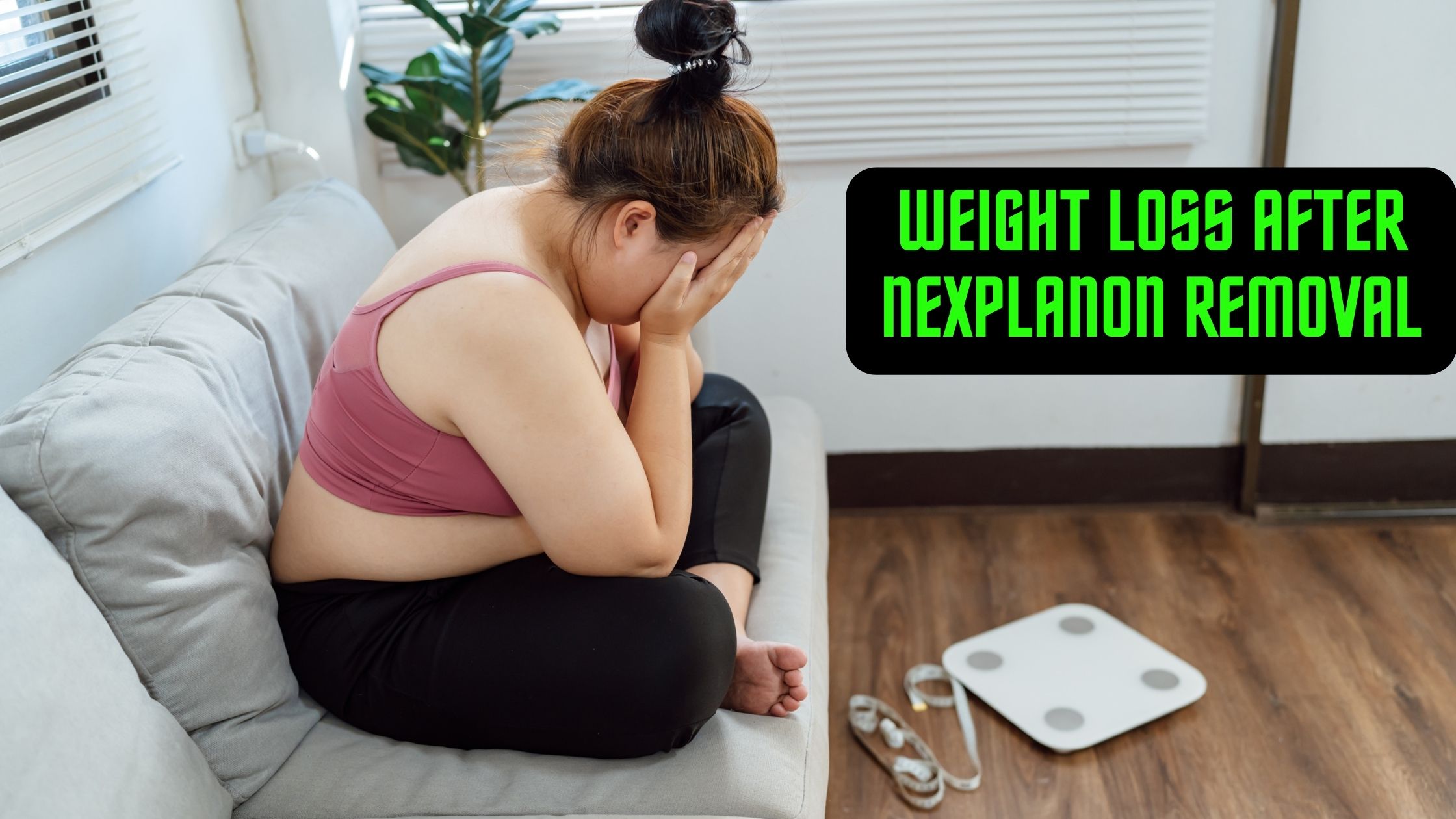Weight Loss After Nexplanon Removal

The contraceptive implant Nexplanon, which offers long-term birth control, is placed under the skin of the upper arm. It is regarded as an efficient technique of birth control.
Will you experience weight loss after Nexplanon removal?
Nexplanon removal generally doesn’t cause weight loss. Some people may gain weight while using Nexplanon. Etonogestrel, a progestin hormone, is released into your body over three years via the implant. This may lead to potential weight gain in some cases. On the other hand, Some people may experience weight reduction after having their Nexplanon removed as their bodies rebalance their hormones.
You must maintain a healthy diet and active lifestyle to lose those extra kilos after removing Nexplanon. Settle in to know more facts regarding weight loss after Nexplanon removal and how you can better your health after this process.
Weight Loss After Nexplanon Removal
Etonogestrel, a hormone Nexplanon releases, thickens cervical mucus, inhibits ovulation, and makes it more challenging for sperm to access the egg by preventing ovulation. Even though Nexplanon is quite good at preventing pregnancy, some people who use it could gain weight.
Ladies sometimes gain extra pounds while they are on Nexplanon. So, after removing it they just lose those extra pounds which they gained because of Nexplanon. Here, I’m listing a few natural ways to help you lose weight after Nexplanon removal.
- Choose complete, nutrient-dense foods like fruits, vegetables, lean proteins, whole grains, and healthy fats as your primary sources of nourishment.
- Limit your intake of processed foods, sweet snacks, and drinks.
- Portion control is important to prevent overeating.
- Drink enough water throughout the day to support metabolism and curb cravings.
- To aid in weight loss and muscle toning, combine strength training with aerobic workouts such as cycling, jogging, and walking.
- To ensure your daily caloric intake supports your weight loss objectives, keep track of it.
- Include stress-relieving exercises in your daily routine, such as yoga, meditation, or engaging in some relaxing activities to ease your mind.
Set realistic objectives and concentrate on long-term lifestyle improvements rather than short-term remedies. Instead of putting pressure on yourself, make this post Nexplanon weight loss journey a fun one.
What Causes Weight Loss after Nexplanon Removal?
There are several causes of weight loss after Nexplanon removal, such as hormonal changes, low appetite, water retention and psychological factor. Let’s dive deeper to understand how these factors play a role in causing weight loss after Nexplanon:
Hormonal Changes
The hormone progestin, which Nexplanon releases, may impact metabolism and fat accumulation. The abrupt discontinuation of progestin has the potential to cause hormonal changes that may affect hunger, energy expenditure, and fat metabolism. Some people may lose weight as a result of these modifications.
Reduced Hunger
While using hormonal contraceptives, some people may have increased appetites. However, this effect may go away after Nexplanon removal. People may naturally eat fewer calories when their hunger is reduced, resulting in weight reduction.
Water Retention
Fluid retention is a side effect of hormonal contraceptives that can occasionally result in weight gain. Any extra water weight that is lost once the Nexplanon is removed may cause weight reduction.
Psychological Factor
Stress hormones can change your appetite and metabolism process. Nexplanon removal can have effects on hormonal levels leading to anxiety. Increased psychological distress can be a factor behind weight loss.
What Happens to Your Body When You Get Off Nexplanon?
Many ladies experience different types of physical changes after their Nexplanon removal. People face changes in their emotional state as well, like mood swings.
Here I’m listing some changes you might go through after removing your Nexplanon.
Hormonal changes
As previously mentioned in this article Etonogestrel, a hormone that Nexplanon releases, suppresses ovulation and thickens cervical mucus. Your body will need to return to its normal hormone levels after removal, which could take some time. Each person will experience this transition over a different amount of time.
Fertility
Although Nexplanon is very successful at preventing conception, taking it out lets your body resume its regular monthly cycle. If you don’t want to get pregnant, you should think about using another type of contraception. It might take some time for your menstrual cycle to normalize, and you might become fertile immediately after Nexplanon removal.
Changes in Monthly Cycle
Some people may see alterations in their menstrual cycle after removing Nexplanon. As your body adjusts to the normal hormonal swings, your periods may start to become irregular or change in length and intensity.
How to Take Care of Yourself After Removing Nexplanon
For a smooth transition following the removal of Nexplanon, you need to look after yourself. You can consider the following self-care advice to improve your health post-Nexplanon removal:
- Maintain the wound’s cleanliness and adhere to any prescribed wound-care guidelines.
- Maintain the wound’s cleanliness and adhere to any prescribed wound-care guidelines.
- Refrain from heavy lifting and intense activity for a few days.
- After the removal procedure, take a nap and give yourself some time to recover.
- Keep a record of your menstrual cycle and make a note of any anomalies or flow variations.
- Prioritize self-care pursuits like exercise, meditation, and time with loved ones, and don’t forget to get enough sleep.
- Plan frequent follow-up visits to keep an eye on your health and handle any issues.
Conclusion:
To sum up, weight loss after Nexplanon removal can vary from person to person. Even while Nexplanon is known to cause weight gain, not everyone experiences it. The effect on weight might vary depending on a number of factors such as genetics, food and exercise habits, and lifestyle. Everyone’s road to losing weight is different, so practice patience, be nice to yourself, and put your general well-being first.





